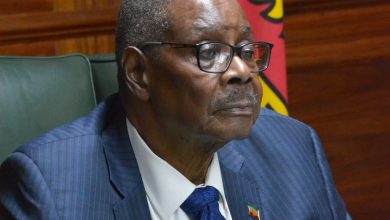Gender activists bemoan slow progress on equality
Leading gender activists have warned that coordinated backlashes from anti-gender movements, conservative religious networks and political actors are threatening progress of Africa’s hard-won gains on gender equality.
In her remarks during a continental summit on women’s leadership in Lilongwe on Thursday, Malawian gender rights advocate and executive director of Women’s Legal Resource Centre Maggie Kathewera Banda said while Africa has made progress in gender equality, reactionary forces are striking back.

resistance. | Nation
“In the 1980s and 1990s, very few Malawian women were in political or decision-making spaces. Now our outgoing Cabinet had 40 percent women. That is progress.
“But progress is not linear. Every gain attracts resistance. These anti-gender movements are well-funded, strategically positioned, and their aim is to undermine gender rights and demonise feminism,” she said.
Kathewera Banda, who is also Non-Governmental Organisation Gender Coordination Network (NGO-GCN) chairperson, further described how the backlash manifests in Malawi through digital harassment, disinformation and political repression, observing that even feminist voices are vilified as ‘un-African’.
She said: “The cyberspace has become a bullying space for women. We recently supported a female politician who was attacked online with false witchcraft accusations just to discredit her candidacy. By the time the truth emerged, the damage was already done.
“If you call yourself a feminist, people question if you’re even normal. They say you are eroding national values; and even pastors’ wives are told to remain silent. This fear of change is why the backlash is happening—they want women to remain in the private space, not the public space.”
For Kathewera Banda, countering this requires bold organising, saying: “We must spread feminist movements across borders, strengthen grassroots women’s groups, reclaim culture and religion from patriarchal interpretations, and proactively portray positive images of women before attacks begin.”
Dione Vugutsa, a Kenyan legal practitioner and programme officer at the African Women Leaders Forum (AWLF), the summit organisers, said the gathering will move beyond rhetoric and produce practical strategies.
She said the forum brought together women from the grassroots, civil society and government to air their realities and shape solutions.
Said Vugutsa: “Feminism is seen as negative and anti-men, but it simply means advocating for the rights of women and the marginalised. It’s about ensuring women in every sphere—from homemakers to presidential candidates—are represented and empowered to have their voices heard in decision-making spaces.”
She warned that even online, women’s voices are algorithmically silenced, adding: “When you search feminism online, the top results are about feminists being unruly. Meanwhile, our content on rights and equality is shadowed because these systems were built by privileged men. That is structural backlash too.”
In her keynote address, The Gambia’s National Youth Service Scheme deputy executive director Lala Touray said despite making significant from the grassroots to the national level, women across Africa are now confronting well-organised resistance.
While acknowledging that landmark legal reforms, including Ghana’s 2024 affirmative action bill, the Maputo Protocol, and bans on child marriage and female genital mutilation have advanced women’s rights, she warned that these very gains have triggered a backlash.
Over 50 activists from Botswana, Cameroon, Eswatini, Kenya, Mozambique, Tanzania, The Gambia, Uganda, Zambia, Zimbabwe and the hosts Malawi attended the summit under the theme Reclaiming Power – Feminist Leadership in a Changing World.





